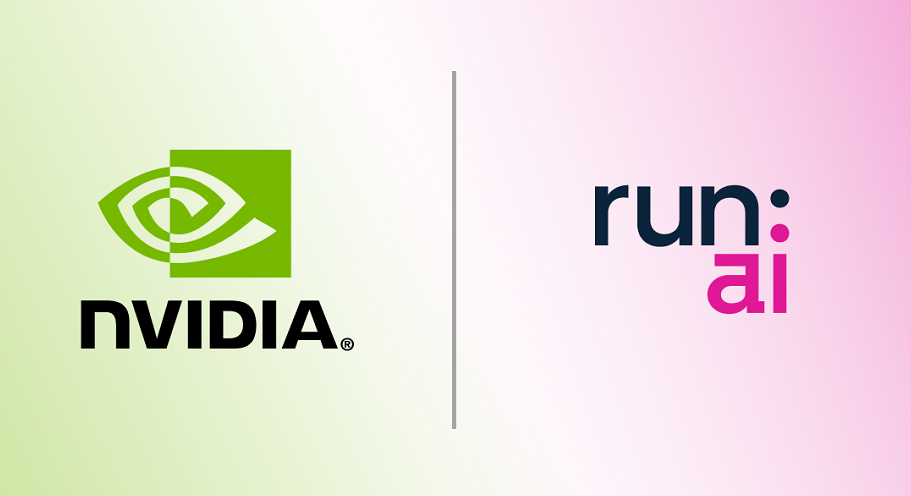
Nvidia Corp. has completed its acquisition of Run:ai, a startup with software that helps enterprises run their artificial intelligence workloads using less hardware.
The deal drew scrutiny from antitrust regulators in both the U.S. and the European Union.
Nvidia announced plans to acquire Run:ai, officially Runai Labs Ltd, in April. TechCrunch reported at the time that the deal was worth $700 million. Run:ai previously raised $118 million in venture funding from Tiger Global and other investors.
Run:ai’s namesake software platform reduces the number of graphics processing units necessary to power AI workloads. It does so by applying performance optimizations that make neural networks more efficient. According to Run:ai, AI infrastructure powered by its software can run ten times as many AI workloads as would otherwise be possible.
One major source of inefficiency in GPU clusters is hardware underutilization. A chip might, for example, run an AI model that uses only 60% of its computing capacity when it could run two smaller models that together use 75%. Run:ai’s platform automatically distributes workloads across GPUs in a way that maximizes hardware efficiency.
According to the company, its platform optimizes AI clusters in other ways as well. Run:ai avoids memory collisions, errors that emerge when two workloads attempt to access a certain section of the GPU’s memory at the same time. Such errors can slow down processing if they’re left unaddressed. Run:ai also avoids situations where a demanding workload uses hardware resources allocated to other applications and thereby slows them down.
Alongside its core infrastructure optimization features, Run:ai provides developer tools. The platform includes open-source large language models, frameworks that allow software teams to build their own neural networks and related components. Users may mix and match those components into software bundles that can be quickly installed on GPUs to create a development environment.
Justice Department and EU officials began looking into the acquisition shortly after Nvidia announced it. According to Politico, the Justice Department’s probe focused on the fact that Run:ai allows companies to run AI models using fewer GPUs than would otherwise be needed, which means they have to buy less Nvidia hardware. Officials were reportedly concerned that the chipmaker bought Run:ai in a bid to “bury a technology that could curb its main profit engine.”
Nvidia plans to open-source Run:ai’s platform following the acquisition, the latter company announced in a blog post today. That should alleviate concerns that the chipmaker might limit access to the software.
“While Run:ai currently supports only NVIDIA GPUs, open sourcing the software will enable it to extend its availability to the entire AI ecosystem,” Run:ai co-founders Ronen Dar and Omri Geller wrote in the post. This hints the goal is to add support for third-party AI chips that compete with Nvidia’s graphics cards.
Besides open-sourcing the software, the chipmaker also plans to enhance its feature set. Dar and Geller wrote that Run:ai plans to grow its “product and market reach,” as well as hire more workers to support the effort.
Image: Run:ai
Your vote of support is important to us and it helps us keep the content FREE.
One click below supports our mission to provide free, deep, and relevant content.
Join our community on YouTube
Join the community that includes more than 15,000 #CubeAlumni experts, including Amazon.com CEO Andy Jassy, Dell Technologies founder and CEO Michael Dell, Intel CEO Pat Gelsinger, and many more luminaries and experts.
THANK YOU










Leave a Comment